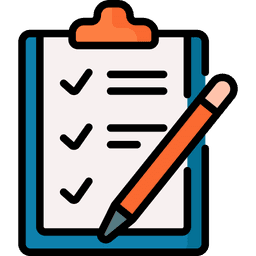7 - The FIDE Test: Tips and Strategies
October 22, 2024
10/22/2024
Here are some practical tips to help you prepare well and feel confident on exam day.
Prepare for everyday life topics
The first step in your preparation is to work on everyday life topics. The FIDE exam mainly tests your ability to understand and interact in real-life situations, so it is very important to practice on familiar themes. For this, we highly recommend you check out our Udemy course, which offers a wide range of topics drawn from daily life. See the video courses on Udemy
Practice with mock exams
Nothing prepares you better than simulating exam conditions. Take the time to review FIDE mock exams and try completing them. You can find these mock exams on the official FIDE website here: Download FIDE mock exams
Practice with other exams: DELF A1, A2, B1
For those feeling a bit stressed, it may be helpful to practice with other types of exams, such as the DELF A1, A2, or B1. While the structure is not exactly the same, these exams offer a great opportunity to practice listening and reading comprehension, as well as writing skills. You will find many training materials available for free, and these will help you get familiar with the question formats. For example, on the France Education website.
Practice speaking with a teacher
Take a few lessons with a certified teacher to specifically work on the FIDE exam scenarios. Even if you don't think you need many lessons, it can be very beneficial to take at least five sessions to cover all possible scenarios, potential questions from the examiner, and boost your confidence.
Anticipate the examiner's questions
Some examiners like to ask one or two questions before starting the exam to break the ice. Be prepared to answer questions like:
“Comment allez-vous ?”
“C’est la première fois que vous passez l'examen ?”
“Comment êtes-vous venu aujourd'hui ?”
“Vous habitez à Genève ? Depuis combien de temps ?”
These questions are an opportunity to make a good impression. If you answer clearly and without hesitation, it can put you in a good position for the rest of the exam.
Speaking section
The speaking section is an important part of the exam. Stay calm, speak clearly, and most importantly, don't hesitate to ask the examiner to repeat if there's a question you don't understand. For example, you could say: “Désolé, je ne comprends pas. Pouvez-vous répéter, s'il vous plaît ?”
For the A2 speaking section, prepare well for the description and role-play tasks. Learn key phrases and expressions that will help you structure your answers. Don’t forget to revise your tenses: present, passé composé, imparfait, future (both near and simple), and conditional if you're preparing for the B1 level.
Listening comprehension
During the listening comprehension, don’t hesitate to wait for the second listening before answering. Focus on the main message and try to identify key information such as dates, numbers, or times. For the A1 and A2 levels, it’s especially important to review numbers.
Writing section: follow the instructions to the letter
In the writing section, it is crucial to carefully read the instructions. Take the time to fully understand the text before answering the questions. For the writing task, follow the instructions exactly, like a step-by-step guide. Don't forget to proofread at the end to avoid spelling or conjugation mistakes.
Prepare with an expert and access exclusive resources
To maximize your chances of success, it is strongly recommended to practice the exam scenarios with a teacher who has experience preparing for the FIDE exam. Don’t wait any longer, start your preparation for free, benefit from a tailored preparation, and receive all the necessary documents to best prepare for the exam.
Don't wait any longer and give yourself the best chance to pass the FIDE test!

Get Your Free Study Plan
Latest posts
Browse all posts
Subscribe to our newsletter
Stay informed and get a free video

